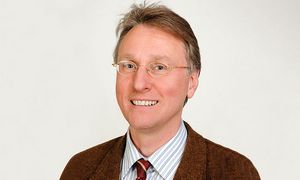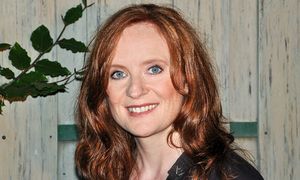Causes
While the best known and most common form of dementia, Alzheimer's disease, is a metabolic disease, in which abnormal protein deposits lead to the death of nerve cells, vascular dementia is a circulatory disorder in the brain. This is caused by calcification of blood vessels in the brain or a stroke. Sometimes, excessive alcohol consumption cab also lead to brain damage. Very rarely are other medical conditions responsible.
Symptoms
Dementia has many different effects. The loss of one's short-term memory is particularly characteristic. Thus, it also impairs one's ability to learn. Often, there is a loss of speech or orientation. It increasingly affects judgement, thinking, and social skills, which is often perceived as a change of character. Everyday life becomes difficult.
During the advanced stages, patients will usually require nursing care.
Diagnostics
During a series of appointments, we diagnose the cause of the decrease in mental capacity in the memory clinic of our outpatient clinic.
The following methods are used:
- Detailed patient and familiy history, focusing on the course of the disease and previous diseases
- General medical, neurological, and neuropsychological examination
- Exclusion of depression as a possible cause
- Blood tests
- Memory performance tests
Further inpatient diagnostics include the following:
- Analysis of the spinal fluid
- Magnetic resonance imaging of the head
- Positron emission tomography (PET) of the head
Therapy
The earlier the therapy begins, the longer the mental deterioration can be delayed. The treatment of dementia is based on the S3 guidelines of the DGPPN. Already during the inpatient stay on the main ward 4-East or within the framework of outpatient aftercare, we initiate therapy comprising a combination of socio-educational counselling and medication.
Support and aftercare
Utilizing outpatient aftercare appointments, we monitor the course of the disease, check treatment effectiveness, and initiate further steps if necessary. In addition, we offer memory training and outpatient occupational therapy consultation. The aim is to optimize the life situation of patients and their relatives at every stage. Counselling centers or self-help groups, which offer practical advice and emotional support through the exchange of information and experience, also contribute to this.
Contact
Appointment
Policlinic
Phone: + 49 931 201-77800
E-Mail: ep_poli@ukw.de
In-patient care
Phone: +49 931 201-76050
E-Mail: ep_poli@ukw.de
Clinic directorate
Prof. Dr. med. Jürgen Deckert
Secretary´s office
Phone: +49 931 201-77010
Fax: : +49 931 201-77020
E-Mail: ps_sekr@ukw.de
Address
Klinik und Poliklinik für Psychiatrie, Psychosomatik und Psychotherapie des Universitätsklinikums | Margarete-Höppel-Platz 1 | 97080 Würzburg | Deutschland


